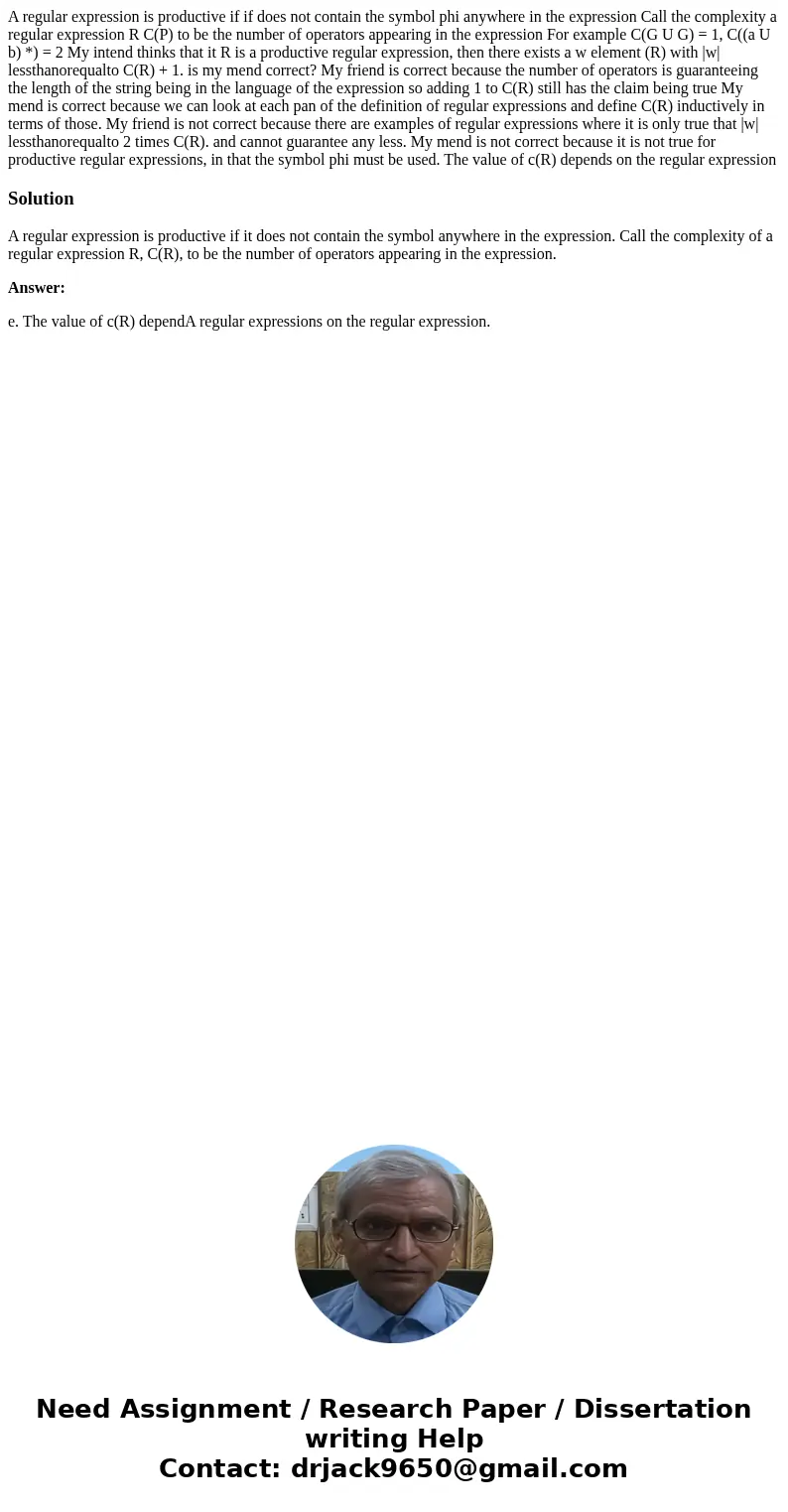A regular expression is productive if if does not contain th
A regular expression is productive if if does not contain the symbol phi anywhere in the expression Call the complexity a regular expression R C(P) to be the number of operators appearing in the expression For example C(G U G) = 1, C((a U b) *) = 2 My intend thinks that it R is a productive regular expression, then there exists a w element (R) with |w| lessthanorequalto C(R) + 1. is my mend correct? My friend is correct because the number of operators is guaranteeing the length of the string being in the language of the expression so adding 1 to C(R) still has the claim being true My mend is correct because we can look at each pan of the definition of regular expressions and define C(R) inductively in terms of those. My friend is not correct because there are examples of regular expressions where it is only true that |w| lessthanorequalto 2 times C(R). and cannot guarantee any less. My mend is not correct because it is not true for productive regular expressions, in that the symbol phi must be used. The value of c(R) depends on the regular expression 
Solution
A regular expression is productive if it does not contain the symbol anywhere in the expression. Call the complexity of a regular expression R, C(R), to be the number of operators appearing in the expression.
Answer:
e. The value of c(R) dependA regular expressions on the regular expression.

 Homework Sourse
Homework Sourse